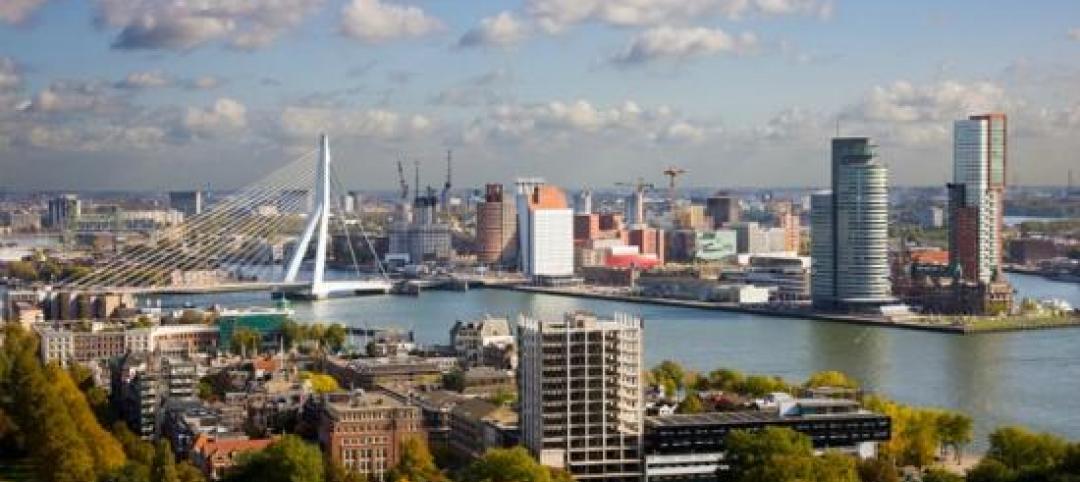Research indicates that most American cities will experience up to five or 10 times as many excessively hot (90+ degrees Fahrenheit) days within a few decades.
To help reduce urban heat, 22 U.S. organizations have launched the Smart Surfaces Coalition. The group’s aim is to help cities to understand how to use advanced surface technologies to reduce heat and prevent flooding.
U.S. cities can cut excess heat days by half, save $700 billion, and create 270,000 new jobs by deploying smart surfaces, according to a news release from the U.S. Green Building Council. “Rapidly rising temperatures are already costing consumers and companies billions in higher energy and health care costs, and making American communities less livable and healthy,” the release says.
Smart surface technologies allow cities to better manage sun radiation and storm water runoff through:
— Cool roofs and pavements that reflect away (instead of absorbing) sunlight—cutting temperatures and smog
— Green roofs and trees that provide shade and reduce flood risk
— Solar PV that converts sunshine into electricity and provides shade
— Porous pavements, sidewalks, and roads that reduce water runoff and flooding and cut the cost of managing storm water
Related Stories
| Dec 11, 2013
Texas to require architects to be fingerprinted to get licensed
Starting January 1, 2014, architects who apply for an occupational license in Texas will have to share their fingerprints with the state.
| Dec 11, 2013
Province of Ontario is reviewing bill to require timely payments to contractors
Legislation is under review in the Province of Ontario that would mandate timely payments to contractors.
| Dec 11, 2013
Federal design-build proposal could make it easier for small businesses to land government contracts
The Design-Build Efficiency and Jobs Act, a bill pending in the U.S. House of Representatives, would streamline the bid and proposal process by requiring government agencies to use a two-step process when seeking design-build contracts for projects worth more than $750,000.
| Dec 11, 2013
NIST recommends tougher standards for tornado resilience
Buildings in tornado-prone areas should be constructed to withstand strong winds just as hurricanes are factored into building codes in coastal areas, says a federal report examining the 2011 killer tornado in Joplin, Mo.
| Dec 10, 2013
Whistleblowers can now file complaints online with OSHA
Whistleblowers covered by one of 22 statutes administered by the Occupational Safety and Health Administration (OSHA) now will be able to file complaints online.
| Dec 4, 2013
Five U.S. cities leading on climate change initiatives
Houston, Salt Lake City, Miami, New York, and Los Angeles are five cities that are leading the way on preparing for climate change and extreme weather, according to a Center for American Progress report.
| Dec 4, 2013
Philadelphia City Council mulling bill requiring ID cards for construction workers
The Philadelphia City Council has held a series of hearings on a bill aimed at boosting the city's safety regulations in the wake of a deadly building collapse earlier this year.
| Dec 4, 2013
Changes completed on 2015 IECC provisions
The 2015 International Energy Conservation Code (IECC)—the code that serves as the model for states’ codes—has undergone final changes.
| Dec 4, 2013
Design-build makes gains along with more authorizing legislation
In 2009, more legislation authorizing design-build project delivery passed than in any year in Design Build Institute of America’s history.
| Dec 4, 2013
Rotterdam resiliency policies include floating neighborhood
The low-lying city of Rotterdam in the Netherlands is a world leader in storm resiliency with policies that impact businesses, private homes, and public infrastructure.
















